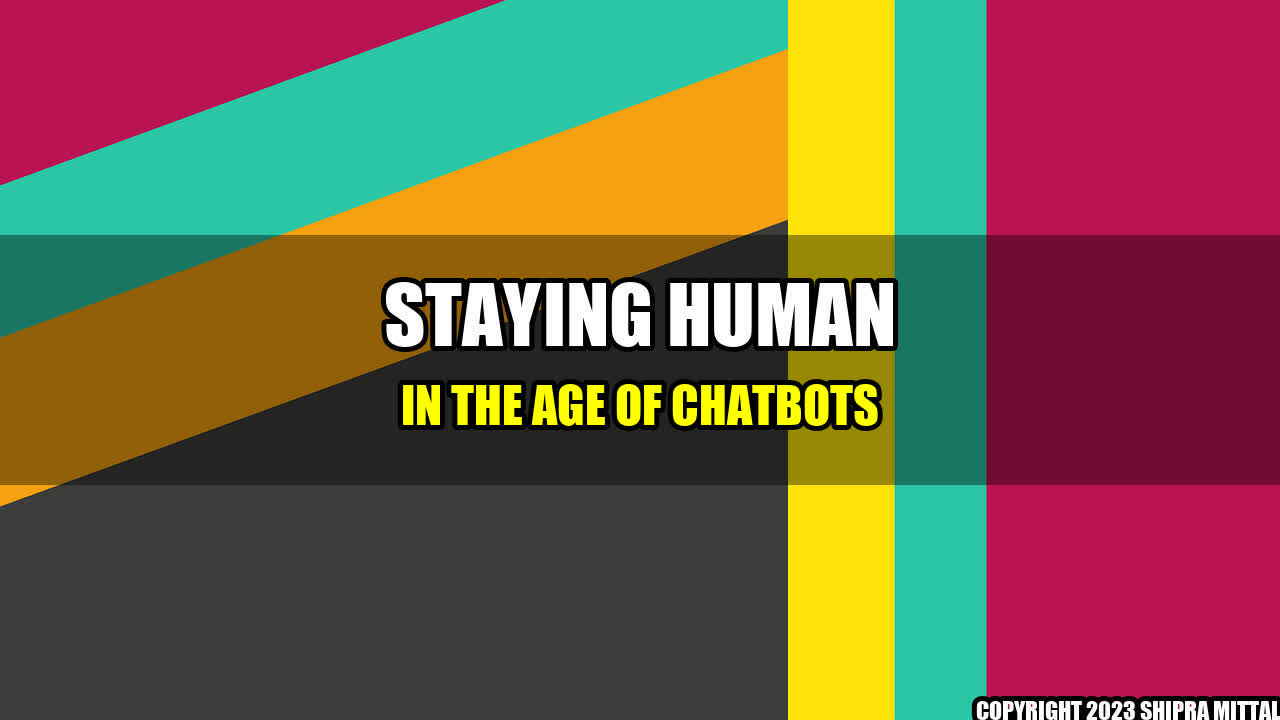Imagine you just bought a new book on Amazon, and the only thing you know about it is the description online. Before you get a chance to read it, you receive a message from the company. Itâs an automated chatbot, asking how you liked the book and if you have any questions about it. You reply with your thoughts, but it quickly becomes apparent the chatbot isnât programmed to handle your questions. You feel unnerved and wonder why the company even bothered sending the message.
As technology progresses, we find ourselves more and more reliant on machines. We use them to automate tasks, entertain us, and interact with us. One of the most significant ways we use machines is through chatbots, computer programs designed to mimic human conversation. While convenient and efficient, chatbots raise questions about the value of human interaction and authenticity. In this article, we explore how chatbots change our lives and what it means to stay human.
Real-life examples
Chatbots have become ubiquitous in our daily lives, from customer service and banking to dating and mental health. We talk to them like theyâre human, but theyâre not. Theyâre designed to analyze your input and give a response based on an algorithm, not empathy.
A study by PWC found that 27% of consumers would use a chatbot to buy products, while 40% donât care if theyâre speaking to a human or machine. This shows that users care about convenience and efficiency more than personal interaction.
Another example is dating apps like Tinder, which uses a chatbot to encourage users to send messages. It detects certain words in profiles and uses them to create a personalized opening message, like âI see you like sushi, me too! Letâs grab a bite sometime.â While itâs an efficient way to get people to connect, it also removes the element of genuine interest and effort.
Main Companies
Conclusion and Critical Comments
- Chatbots are convenient and efficient, but theyâre not a replacement for human interaction. They lack empathy and authenticity, which are essential elements of our humanity.
- As more industries and companies adopt chatbots, itâs important to consider the consequences of replacing human workers with machines. While it may save time and money, it can also lead to job loss and a devaluation of the human contribution.
- Ultimately, the purpose of technology is to enhance our lives, not replace them. We must use chatbots and other machines in a way that respects our humanity and allows us to retain our social skills and emotional depth.

Akash Mittal Tech Article
Share on Twitter Share on LinkedIn